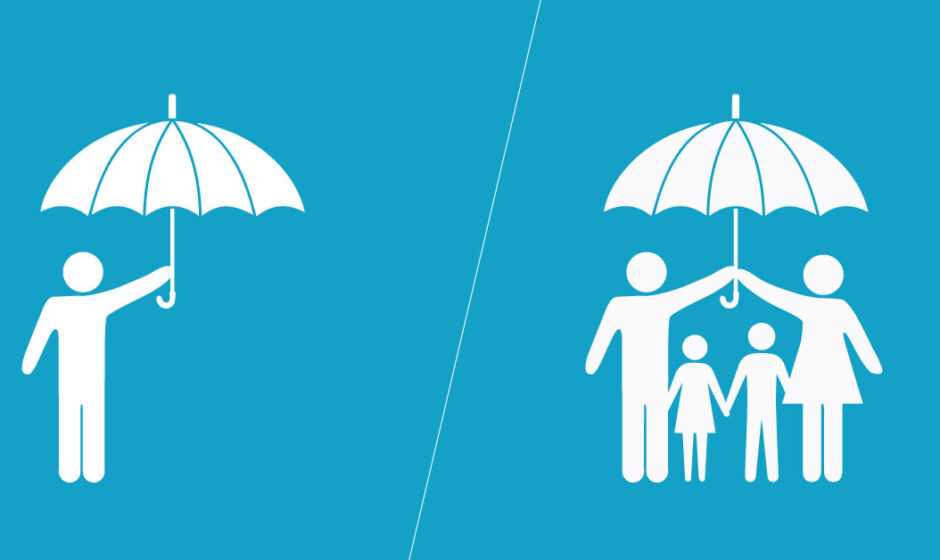Choosing the right health insurance policy in India is crucial for ensuring that your family’s healthcare needs are adequately covered. Family floater medical insurance and individual health insurance plans are two standard options in India.
Each has its benefits, and the choice between them depends on your family’s needs. This article will explore the differences between these two types of insurance, helping you decide which option is best for you.
Family Medical Insurance vs. Individual Plans
1. Understanding Family Floater Medical Insurance
Family floater medical insurance is a type of health insurance policy in India that covers the entire family under a single plan. Instead of purchasing separate policies for each family member, a family floater plan allows all members to share a single sum insured. Any family member needing medical treatment can use the coverage up to the policy’s limit.
One of the significant advantages of a family floater plan is cost-effectiveness. Since the premium is based on the age and health of the oldest family member, it is often lower than the combined premiums of individual policies.
This makes family floater medical insurance an attractive option for families looking for comprehensive coverage at an affordable price. However, it’s important to note that some plans offer options to restore or increase coverage after a claim.
This can mitigate the risk of depleted coverage for other family members. In cases where one member exhausts a large portion of the sum insured, the remaining coverage for others may be limited until the policy is renewed.
2. Exploring Individual Health Insurance Plans
Individual health insurance provides separate coverage for each person. Each family member has their policy, with a sum insured dedicated solely to their medical needs. This type of policy is ideal for those who want to ensure that each family member has sufficient coverage, regardless of the other’s claims.
The primary benefit of individual health insurance is the flexibility it offers. Each policy is tailored to the insured’s specific needs, which means that you can choose different coverage amounts or additional riders for each family member.
For instance, if a family member has a pre-existing condition or requires critical illness coverage, an individual plan can be customized to meet those needs.
However, the cost of individual health insurance can vary widely depending on each person’s age, health, and risk profile. While the flexibility is a key benefit, this can often result in higher overall costs compared to a family floater plan.
3. Coverage and Premium Considerations
Coverage and premium costs are significant factors when choosing between medical insurance for family and individual health insurance plans. In a family floater plan, the premium is determined by the age and health profile of the oldest family member.
While this can make the premium more affordable, it’s important to understand that the entire family’s coverage depends on one policy, and high claims by one member can affect the coverage available to others.
In contrast, individual health insurance plans calculate premiums based on each person’s risk profile. This means that the premium for each policy can vary, especially if one or more family members have higher health risks. Although this may result in higher overall costs, individual plans ensure that each member has dedicated coverage that is not affected by the others’ claims.
Family floater plans often cover dependents, such as children and sometimes parents, under one policy. This can be a convenient and cost-effective way to protect all family members.
On the other hand, individual health insurance requires separate policies for each dependent, which can increase the overall cost but offer more tailored coverage specific to each member’s needs.
Family Medical Insurance vs. Individual Plans
| Aspect | Family Medical Insurance | Individual Plans |
| Coverage | Covers the entire family under a single plan. | Separate policies for each individual. |
| Sum Insured | Shared among all family members; coverage depletes with claims. | Dedicated sum insured for each person; unaffected by others’ claims. |
| Premium Cost | Typically lower, based on the age and health of the oldest member. | Higher, as premiums are based on each person’s age and health. |
| Flexibility | Less flexible; shared coverage may limit benefits if exhausted. | More flexible; customizable to each person’s needs and conditions. |
| Best For | Young, healthy families; cost-effective for small to medium-sized families. | Families with older members or varying health risks; offers tailored coverage. |
Which Plan Is Right for Your Family?
Deciding between a family floater plan and individual health insurance depends on your family’s healthcare needs and financial situation.
If you have a young family with generally good health, a family floater plan might be the most cost-effective option, providing sufficient coverage at a lower premium. It’s especially beneficial for small to medium-sized families with a low risk of multiple large claims in a year.
However, if your family includes older members or individuals with specific health needs, individual health insurance may be the better choice.
It offers more flexibility and ensures that each person has adequate coverage without the risk of another member’s claims depleting the insured sum.
This can be particularly important if you anticipate higher medical costs for certain family members or if your family includes members with varying health risks.
Conclusion
Choosing between medical insurance for family and individual health insurance plans in India requires careful consideration of your family’s healthcare needs and financial situation. Family floater plans offer cost-effective, shared coverage that works well for young, healthy families, while individual plans provide tailored coverage with greater flexibility.
By assessing the specific needs of each family member and comparing the costs and benefits of both options, you can make an informed decision that ensures the well-being and financial security of your loved ones.


